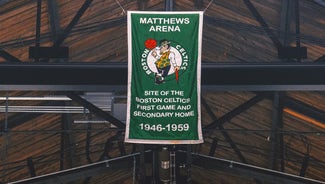Back to backs in the bubble: NHL teams adjust to new normal
Jon Cooper doesn't even need to talk to his players to know who is skating and who is resting on a non-game day.
For his Tampa Bay Lightning and the other teams in the NHL playoffs, there are far more days with games. With the league trying to ,, every second-round series has at least one back-to-back scheduled — some have multiple sets — and players and coaches are forced to adapt to managing energy and strategy with the Stanley Cup waiting at the end.
“You’ve just got to trust that your guys are doing the right things for themselves," Cooper said. “Part of it is getting your body ready and getting on the ice, and tying up the skates again is not always the best thing for you. Maybe it’s an outdoor activity or maybe it’s clearing the mind but still getting the body going and get the lactic acid out of your legs. There’s so many different things.”
Back-to-backs are a normal part of the regular season and become more of a rarity in the playoffs, when series are typically spread out over two weeks for better quality hockey and a longer spotlight on the sport. Back-to-back games were part of the qualifying and first rounds to narrow the field, but Boston coach Bruce Cassidy was surprised to see them in the second round with only eight teams left.
That means his Bruins and Cooper's Lightning play Game 3 on Wednesday night roughly 24 hours after starting Game 2. The Philadelphia Flyers and New York Islanders face a similar, slightly longer turnaround between games Wednesday afternoon and Thursday night.
Cassidy before the start of the series hinted at possibly needing to press new backup goaltender Dan Vladar into his NHL debut because of the schedule, but roster management stretches far beyond the net.
“It’ll be interesting to see how players react, and it’s going to be up to the coaches to decide who looks fresh, who looks like they have energy and can execute and perform on the ice,” Flyers coach Alain Vigneault said. “Each team is going to have some hard decisions as each game moves forward.”
Players don't see it as a choice. Maybe it's a luxury.
New York's Leo Komarov said, “It’s nice to play games, not sit at a hotel.” Even so, he and his teammates understand there's a fine line between staying sharp and not wasting energy between games.
“You’ve just got to do whatever you need to do to feel your best,” Islanders defenseman Nick Leddy said. “You kind of understand what you need to do and how to take care of your body over the years. I think you just automatically do it. It’s not really one thing or the other. I think it’s also just being a professional and taking care of your body.”
This kind of schedule could benefit older teams with more experienced players who have a routine of rest and rehab. Or maybe there's more spring in young legs to be able to handle playing as many as four games in five and a half days.
“I think you just take the time to recover on the off days,” Dallas Stars defenseman John Klingberg said. “It’s more of an individual schedule there, too — what you want to do to recover.”
Recovery is crucial because these games are more intense and demanding than back-to-backs in the regular season. Coaches know that, which is why many if not most teams don't even practice between games this deep in the playoffs.
“We had a full season, we had a three-week camp, we’ve ironed out a lot of things during the first round. It’s not like you’re throwing in any trick plays or anything like that,” Cooper said. " It’s about having the body ready to go and everybody’s different. ...
“The one thing back-to-backs do is it puts more stress on players’ bodies, having less turnaround, less rest, but both teams go through it.”
All the teams are going through it now in the Toronto and Edmonton bubbles. It remains to be seen if the condensed schedule continues when the conference finals begin soon in Edmonton, though every indication is the back-to-backs are preferred to staying in quarantine longer.
“Just rest up, I guess,” Vancouver Canucks forward J.T. Miller said. “Rest up because we’re playing a lot of hockey.”
___
More AP NHL: https://apnews.com/NHL and https://twitter.com/AP_Sports



